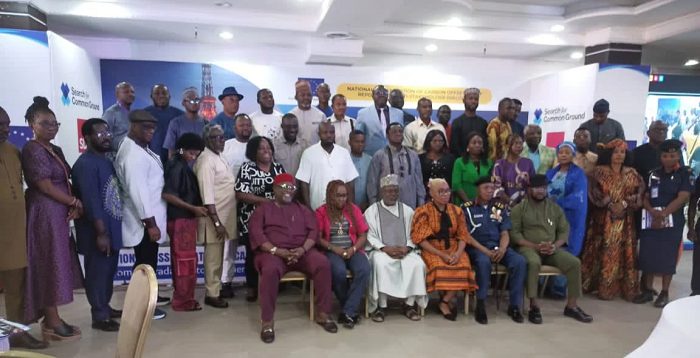The Country Director of Search for Common Ground, Mr. About Ouattara, on Thursday, September 4, 2025, said that carbon offset initiatives could offer a practical solution to the triple challenges facing the Niger Delta.
He identified these challenges as pollution, poverty, and violence, noting that a well-structured carbon market could help address both environmental and socio-economic issues in the region

Speaking at the National Dissemination of the Carbon Offset Study Report and Multi-Stakeholder Dialogue in Abuja, Ouattara described the region as “a paradox of abundance and adversity.”
In spite of its resource wealth, he noted, decades of gas flaring, oil spills and artisanal refining had left communities struggling with environmental degradation, loss of livelihoods, and severe health risks.
He pointed out that the Niger Delta recorded some of the highest emissions in Africa, largely due to gas flaring and informal oil activities.
“These emissions not only fuel global climate change but also deepen socio-economic vulnerabilities, creating a cycle where environmental damage drives underdevelopment, which in turn fuels conflict and criminality,” Ouattara said.
He highlighted the EU-funded Community-Centered Approach to Transforming Criminality and Violence in the Niger Delta, implemented with the Stakeholder Democracy Network (SDN) and PIND Foundation, as a promising model.
By aligning carbon offset strategies with local aspirations, he said the initiative offered both environmental and peacebuilding benefits.
In his remarks, Eric Pitos, Programme Manager at the European Foreign Policy Institute in Dakar, reaffirmed the EU’s commitment to climate action.
He said the initiative aligned with the European Green Deal and broader efforts to achieve climate neutrality by 2050.
“Carbon offsets can complement direct emissions cuts, if governed with integrity,” Pitos said, citing the EU Emissions Trading System, which had cut emissions by nearly half and generated more than 200 billion euro for clean innovation.
He stressed that while Nigeria’s exposure to the EU’s Carbon Border Adjustment Mechanism may be limited, its leadership potential in renewables and carbon pricing was significant.
Also speaking, Ms. Florence Kayemba, Country Director of SDN, warned that environmental degradation continued to fuel insecurity in the Niger Delta, with long-term impacted on livelihoods and social stability.
“We have seen the scars of gas flaring and pollution for more than 20 years.
“These drive unemployment and crime, which regrettably continue to rise,” she said.
Kayemba urged Nigerian regulators to adopt global best practices for managing carbon markets to ensure local communities benefit directly.
“Carbon offset initiatives must not only reduce emissions but also address root causes of insecurity.
“The most affected should be the primary beneficiaries,” she said.
The Abuja dialogue brought together policymakers, researchers, civil society, private sector, and community leaders to build consensus around embedding carbon offsets in Nigeria’s development and peacebuilding strategy.
Organisers said the forum followed previous state-level dialogues in Rivers, Bayelsa, and Delta States, which identified urgent concerns including environmental degradation, youth vulnerability, and drug abuse in the region.
By Sumaila Ogbaje and Angela Atabo
